Comprehensive Garden Maintenance in Sanderstead
Introduction to Garden Maintenance

Maintaining a beautiful garden in Sanderstead requires dedication, knowledge, and the right tools. Whether you're a seasoned gardener or a novice, understanding the essentials of garden maintenance can transform your outdoor space into a vibrant and thriving oasis.
Garden maintenance encompasses a variety of tasks, from pruning and weeding to soil management and pest control. Each of these tasks plays a crucial role in ensuring the health and beauty of your garden throughout the year.
In this article, we'll explore the key aspects of garden maintenance in Sanderstead, providing you with actionable tips and strategies to keep your garden in excellent condition.
Seasonal Garden Care
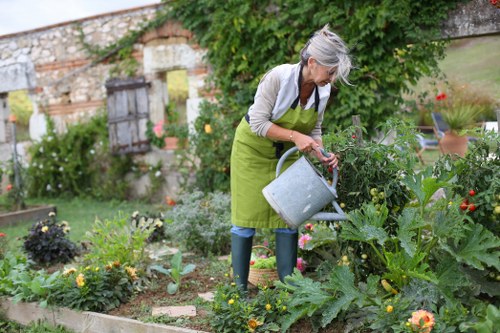
Different seasons bring different challenges and opportunities for your garden. Adapting your maintenance routines to the seasonal changes ensures that your plants remain healthy and vibrant.
Spring: This is the perfect time for planting new flowers and vegetables. It’s also essential to prepare your soil by adding compost and mulch to retain moisture and suppress weeds.
Summer: Regular watering is crucial during the hot months. Focus on pruning and deadheading to encourage healthy growth and remove any diseased or damaged plants.
Pruning and Trimming Techniques
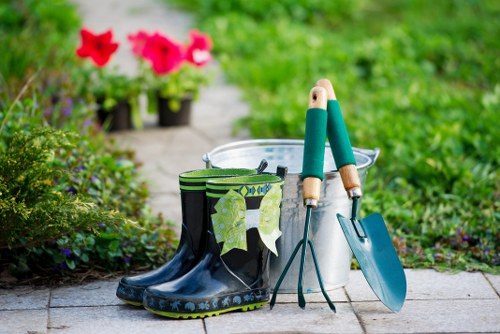
Proper pruning and trimming are vital for maintaining the shape and health of your plants. It helps in preventing diseases, promoting airflow, and encouraging new growth.
Use the right tools for the job, such as sharp shears for delicate plants and sturdy saws for larger branches. Always sanitize your tools before and after use to prevent the spread of diseases.
When pruning, make clean cuts at a 45-degree angle to allow for proper healing. Avoid over-pruning, which can stress the plant and reduce its ability to produce flowers or fruits.
Soil Health and Fertilization
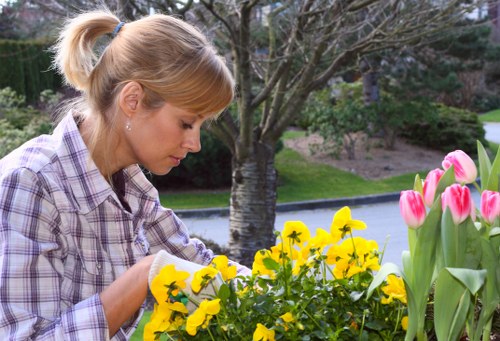
The foundation of a healthy garden lies in the quality of the soil. Regularly testing your soil can help you understand its pH level, nutrient content, and texture.
Key practices for maintaining soil health include:
- Adding Organic Matter: Incorporate compost, manure, or leaf mold to improve soil structure and fertility.
- Mulching: Apply a layer of mulch to retain moisture, regulate temperature, and suppress weed growth.
- Crop Rotation: Change the location of specific plants each season to prevent soil depletion and reduce pest buildup.
Fertilization should be tailored to the specific needs of your plants. Use slow-release fertilizers to provide a steady supply of nutrients without overwhelming the plants.
Pest and Disease Management
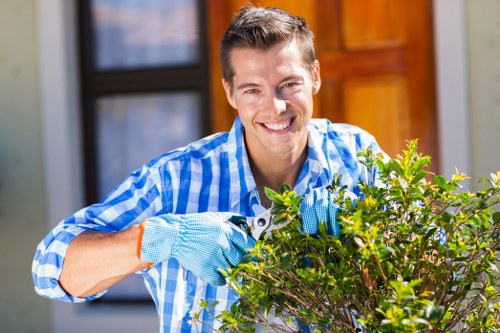
Protecting your garden from pests and diseases is crucial for its longevity and beauty. Early detection and integrated pest management strategies can help you effectively control unwanted intruders.
Integrated Pest Management (IPM) involves combining biological, cultural, and chemical practices to manage pests sustainably.
Biological controls include introducing natural predators like ladybugs to combat aphids. Cultural practices involve rotating crops and maintaining plant diversity to reduce pest habitats. Use chemical controls as a last resort, opting for environmentally friendly options whenever possible.
Watering Strategies for Optimal Growth
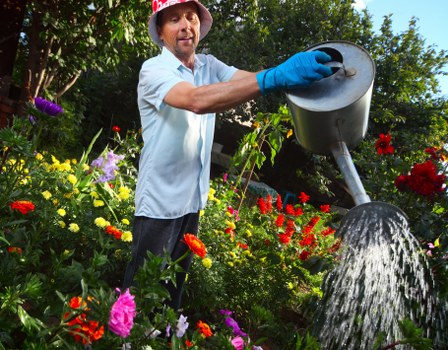
Efficient watering is essential for the survival and growth of your plants. Overwatering can lead to root rot, while underwatering stresses the plants and inhibits growth.
Implementing a drip irrigation system can provide consistent moisture directly to the roots, minimizing water wastage and reducing evaporation.
Water your garden early in the morning or late in the evening to reduce water loss due to evaporation and allow plants to absorb moisture more effectively.
Weed Control Methods
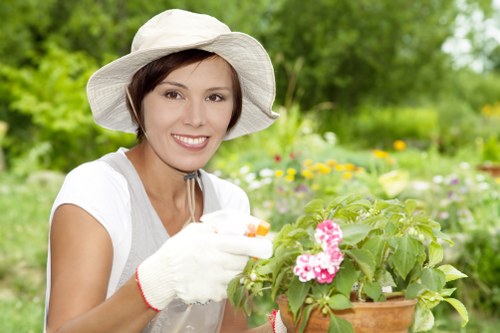
Weeds compete with your plants for nutrients, light, and water. Effective weed control is necessary to maintain a healthy and attractive garden.
Manual removal is one of the most effective ways to control weeds. Regularly inspect your garden and pull out weeds by hand, ensuring you remove the entire root system.
Using mulch not only conserves moisture but also suppresses weed growth. organic mulches like wood chips or straw are particularly effective.
Choosing the Right Plants for Sanderstead
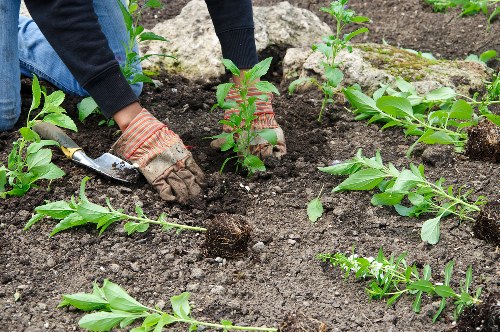
Selecting plants that are well-suited to the local climate and soil conditions is paramount for a flourishing garden in Sanderstead.
Consider native plants as they are adapted to the local environment and require less maintenance. Additionally, they provide habitat for local wildlife, enhancing the biodiversity of your garden.
Incorporate a mix of perennials, annuals, shrubs, and trees to create a diverse and dynamic garden landscape.
Garden Tools and Equipment
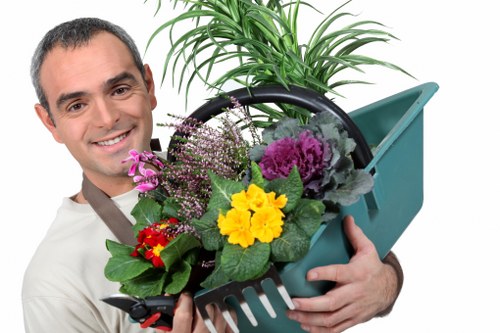
Having the right tools makes garden maintenance tasks more manageable and efficient. Invest in quality tools that are durable and ergonomic to reduce fatigue during use.
Essential garden tools include:
- Pruners: For trimming and shaping plants.
- Shovels and Spades: For digging and planting.
- Rakes: To level soil and gather leaves.
- Watering Equipment: Such as hoses, sprinklers, or drip irrigation systems.
- Gloves: To protect your hands from thorns, dirt, and chemicals.
Regular maintenance of your tools, including cleaning and sharpening, ensures they remain effective and extend their lifespan.
Lawn Care in Sanderstead
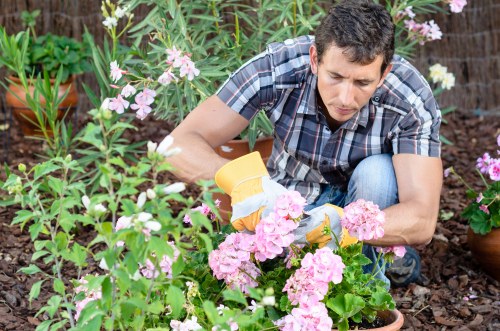
A well-maintained lawn is a cornerstone of any beautiful garden. Proper lawn care involves mowing, aeration, fertilization, and pest control.
Mowing: Keep your grass at an optimal height to encourage healthy growth. Avoid cutting more than one-third of the grass blade at a time to prevent stress.
Aeration: Regularly aerate your lawn to improve soil respiration and nutrient uptake. This process alleviates soil compaction, allowing roots to grow deeper and stronger.
Garden Lighting and Aesthetics
[IMG_11]Enhancing your garden with strategic lighting and aesthetic elements can transform it into a stunning nighttime retreat. Utilize solar-powered lights or low-voltage LED fixtures to illuminate pathways, highlight focal points, and create ambiance.
Incorporate decorative elements such as garden sculptures, water features, or pergolas to add character and visual interest to your outdoor space.
Consider the placement of plants and lighting to create layers and depth, making your garden visually appealing both day and night.
Sustainable Gardening Practices
[IMG_12]Adopting sustainable gardening practices not only benefits the environment but also promotes a healthier and more resilient garden.
Key sustainable practices include:
- Composting: Recycle organic waste into nutrient-rich compost to improve soil health and reduce landfill waste.
- Rainwater Harvesting: Collect and store rainwater for irrigation, conserving water resources and reducing your water bill.
- Natural Pest Control: Use eco-friendly methods to manage pests, minimizing the need for chemical pesticides.
- Plant Diversity: Encourage a variety of plants to support beneficial insects and create a balanced ecosystem.
Implementing these practices contributes to a sustainable and thriving garden in Sanderstead.
Professional Garden Maintenance Services
[IMG_13]While DIY garden maintenance is rewarding, sometimes it's beneficial to enlist the expertise of professional gardeners. Professional services offer tailored maintenance plans, expertise in plant care, and access to specialized equipment.
Hiring a professional ensures that your garden receives the attention it needs, from regular upkeep to addressing specific challenges like pest infestations or soil deficiencies.
Consider booking a reputable garden maintenance service in Sanderstead to keep your garden in pristine condition year-round.
DIY Garden Maintenance Tips
[IMG_14]For those who prefer a hands-on approach, here are some DIY tips to streamline your garden maintenance routine:
- Plan Your Garden: Designate specific areas for different plant types to ensure optimal growth conditions.
- Regular Monitoring: Inspect your plants regularly for signs of stress, pests, or diseases.
- Efficient Watering: Use watering cans or hose attachments that minimize water waste.
- Tool Organization: Keep your tools organized and easily accessible to make maintenance tasks more efficient.
- Continuous Learning: Stay informed about gardening best practices through books, workshops, and online resources.
Implementing these tips can help you maintain a beautiful and healthy garden with minimal effort.
Enhancing Garden Biodiversity
[IMG_15]A diverse garden supports a wide range of wildlife, including birds, insects, and beneficial microorganisms. Enhancing biodiversity not only creates a lively ecosystem but also contributes to natural pest control and pollination.
Plant a variety of species, including native plants, to attract different types of wildlife. Incorporate features like birdhouses, butterfly gardens, and water sources to encourage diverse animal activity.
Maintain a balance by avoiding the overuse of chemical fertilizers and pesticides, which can harm beneficial organisms and disrupt the natural harmony of your garden.
Conclusion and Next Steps
[IMG_16]Effective garden maintenance in Sanderstead involves a combination of regular care, proactive strategies, and a commitment to sustainability. By understanding the unique needs of your garden and implementing the practices discussed, you can enjoy a beautiful and thriving outdoor space year-round.
Whether you choose to manage your garden yourself or seek professional assistance, the key is consistency and dedication to the health and beauty of your plants.
Contact us today to learn more about our garden maintenance services and take the first step toward a stunning garden in Sanderstead.
